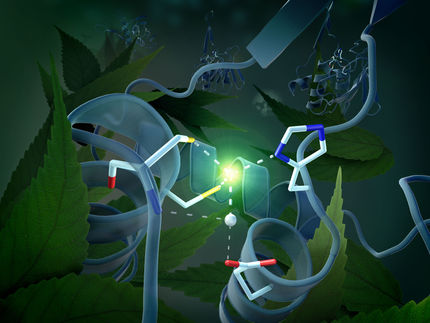Biological warfare in bacteria offers hope for new antibiotics
Scientists are to study a group of proteins that are highly effective at killing bacteria and which could hold the key to developing new types of antibiotics.
Researchers from the Universities of York and Leeds have been awarded £3.3m from the Biotechnology and Biological Sciences Research Council (BBSRC) to find out how a family of proteins known as colicins force their way into bacterial cells before destroying them.
The team, led by Professor Colin Kleanthous, from the University of York's Department of Biology, will develop earlier research that suggests colicins use decoys to mimic key parts of the cells' own protein machinery to evade their defences.
Professor Kleanthous said: "Colicins are the weapon used in the biological warfare that takes place between competing bacteria. Understanding how this group of proteins work could help scientists develop new drug delivery methods to target the bacteria that cause diseases in people."
"It's as though the colicins are carrying the equivalent of hand grenades which they can deploy without harming themselves," said Professor Sheena Radford of the University of Leeds' Faculty of Biological Sciences.
The five year programme of research aims to discover how colicins specifically penetrate Gram-negative bacteria which are protected by two membrane barriers.
It will involve collaboration between six groups of scientists from the Departments of Biology and Chemistry at the University of York and the Astbury Centre for Structural and Molecular Biology, Faculty of Biological Sciences, at the University of Leeds.
Most read news
Topics
Organizations
Other news from the department science

Get the life science industry in your inbox
By submitting this form you agree that LUMITOS AG will send you the newsletter(s) selected above by email. Your data will not be passed on to third parties. Your data will be stored and processed in accordance with our data protection regulations. LUMITOS may contact you by email for the purpose of advertising or market and opinion surveys. You can revoke your consent at any time without giving reasons to LUMITOS AG, Ernst-Augustin-Str. 2, 12489 Berlin, Germany or by e-mail at revoke@lumitos.com with effect for the future. In addition, each email contains a link to unsubscribe from the corresponding newsletter.


















































